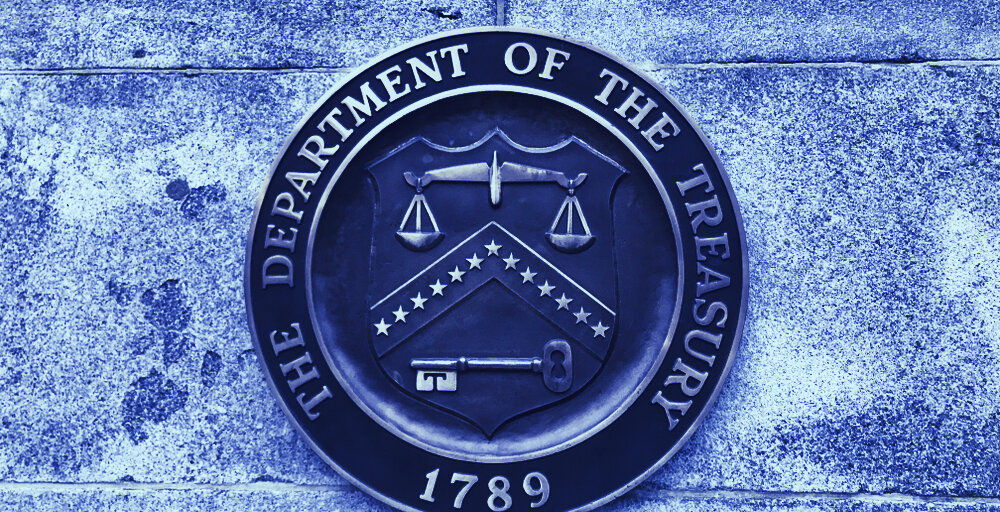 A new proposal for regulating private crypto wallets may infringe on civil liberties, argue analysts.
A new proposal for regulating private crypto wallets may infringe on civil liberties, argue analysts.
The U.S. Treasury yesterday proposed a regulation that would require banks and crypto exchanges to confirm the identity of the owners of non-custodial cryptocurrency wallets to whom its customers send crypto.
According to the proposal, put forward by the Treasury’s Financial Crimes Enforcement Network, banks and other financial institutions that exchange or issue money must “submit reports, keep records, and verify the identity of [some] customers” who send cryptocurrency into private wallets. These institutions would have to verify and record the names and physical addresses of wallet holders who receive $3,000 in crypto, and report those details to FinCEN when a customer sends over $10,000.
The new regulation would subject wallet owners to the Bank Secrecy Act, which is designed to prevent things like money laundering. The logic is that increased recordkeeping would help police track criminals that use cryptocurrencies to prevent “state-sponsored ransomware and cybersecurity attacks, sanctions evasion, and financing of global terrorism.”
The new rules aren’t yet in effect. FinCEN is asking for written comments on the proposal until January 4—a relatively short window, owing to what the FinCEN cites as “significant national security imperatives” that necessitate a quicker-than-usual implementation.
Marta Belcher, an attorney at Ropes & Gray, told Decrypt that this is an “extremely abbreviated timeline.”
She’s among several crypto analysts and lawmakers who believe that the proposal infringes on civil liberties.
“This is part of a disturbing trend of the U.S. government increasingly turning to financial intermediaries to collect sensitive user data of cryptocurrency users and applying the financial surveillance of the traditional banking system to crypto,” Belcher told Decrypt.
Cynthia Lummis, the GOP lawmaker and Bitcoin-friendly senator-elect for Wyoming, argued on Twitter yesterday that the regulation would be “a step backward” for the USA, which is just beginning to “realize the transformative effects of digital assets and financial technology.”
Lummis also said she’s spoken with Treasury Secretary Steven Mnuchin about the issue. “Let the sunshine in, Mr. Secretary,” she said.
Rather than prematurely adopting a rule on this complex topic, Treasury should immediately begin a transparent process to engage with Congress and industry, building a consensus to drive America forward. (3/8)
— Cynthia Lummis (@CynthiaMLummis) December 18, 2020
Warren Davidson, another conservative congressperson, echoed Lummis in a quote tweet, writing, “Those charged with securing America’s financial future should not fear the light of public debate and recorded votes.”
Jake Chervinsky, general counsel at Compound Finance, slammed the 15-day public comment window as “midnight rulemaking.”
He was quick to point out the limited scope of the proposed regulation.
“This doesn’t require KYC for every transaction with a non-custodial wallet. It isn’t an outright ban on self-custody. It doesn’t prohibit the act of using a permissionless network,” he wrote, honing in on what he sees as the bright side, before reiterating that the new rules would still be ineffective: “It doesn’t stop VASP [virtual asset service provider] customers from transacting with bad guys.”
1/ After a long wait, FinCEN has finally issued its new proposed rule extending AML regulation to non-custodial wallets.
It could’ve been worse (really), but it’s still a terrible rule in both process & substance.
Here’s what it says, what’s wrong with it, & what we do next
— Jake Chervinsky (@jchervinsky) December 19, 2020
Continued Chervinsky, “The rule would impose huge burdens on VASPs, their customers, & society at large, perhaps infringing constitutional rights, without conveying any benefit to government in general or law enforcement in particular.”
For, now he said, the best the crypto community can do is “keep calm & carry on.”






GIPHY App Key not set. Please check settings